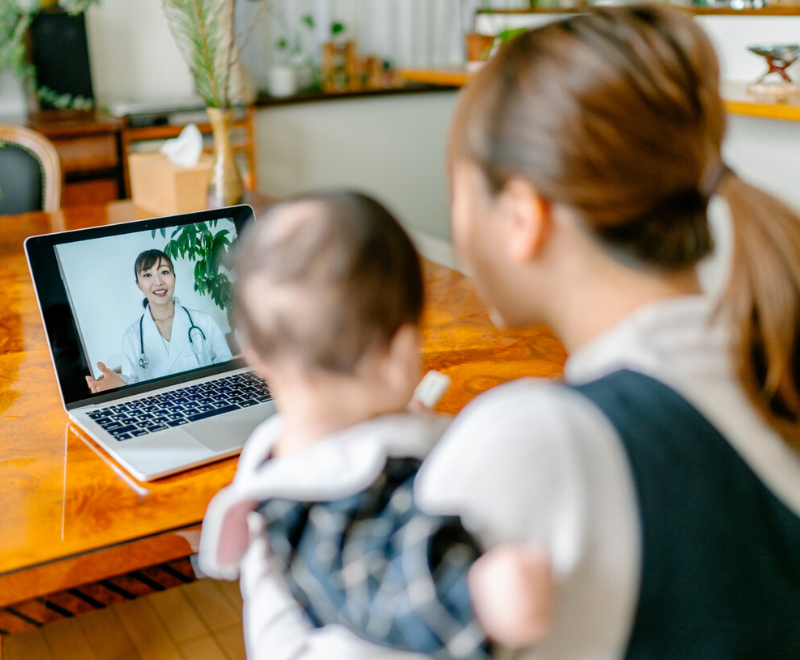Before the pandemic, Johns Hopkins conducted a few dozen telehealth visits each day. Starting early last spring, we greatly expanded that capability to ensure patients continue to receive the right care at the right time.
Johns Hopkins certainly isn’t the only health system to spur this shift. In fact, a nationwide survey conducted in April 2020 showed that 90% of physicians were offering telehealth visits in response to COVID-19. As a result of these rapidly scaled remote offerings, providers are seeing 50 to 175 times the number of patients via telehealth than they did before the pandemic, most often for wellness visits (41%) and chronic disease management (30%).
Looking at the data from the public’s perspective: Nearly three-quarters of patients accessed their first-ever telehealth visit during the pandemic, and 75% reported high satisfaction with the experience. Half of patients say they are willing to switch providers for telemedicine; and 76% are interested in telehealth as a future option.
While this current and potential use demonstrates that many patients and providers are ready to embrace telehealth, health systems also should be aware that in that same survey, 55% of patients reported not understanding next steps following a telehealth visit, and only 35% received follow-up communication.
Health care systems still have work to do to conduct appointments virtually without compromising quality and patient outcomes, but acceptance and accessibility are solidly in place. Here are a few other positive changes that have great potential to improve how we deliver care virtually:
- Chatbots powered by artificial intelligence would allow providers to triage a patient’s condition prior to inpatient admittance. This would help to direct patients properly so they arrive at the hospital ready to undergo a test or procedure.
- Telemonitoring allows health care professionals ― as well as patients and families ― to easily gather health data like blood pressure, heart rate and weight, and track changes that could indicate risk for disease. With this information, providers can then recommend preventive care at early stages. It reduces chronic disease complications thanks to better follow-up; it also provides health care services without using hospital beds and reduces patient travel, time off from work and overall costs.
- There’s also an ongoing trend to “Uber-ize” health care logistics, including patient transport and delivery of medications and medical equipment. In 2018, the rideshare company launched Uber Health to allow health care professionals to order rides for patients going to and from the care they need. This August, Uber launched a pilot program to begin a prescription-delivery service. This new offering could expand to include the delivery of medical equipment such as wheelchairs, insulin pumps and ventilators. We may well see an important and dramatic increase in the availability and access to essential medical products.
A lot has changed in health care in a relatively short timeframe. A big part of patient care has gone virtual during the COVID-19 pandemic, and this will have long-term ramifications on how we prevent and treat disease ― even after we return to more normal times.
